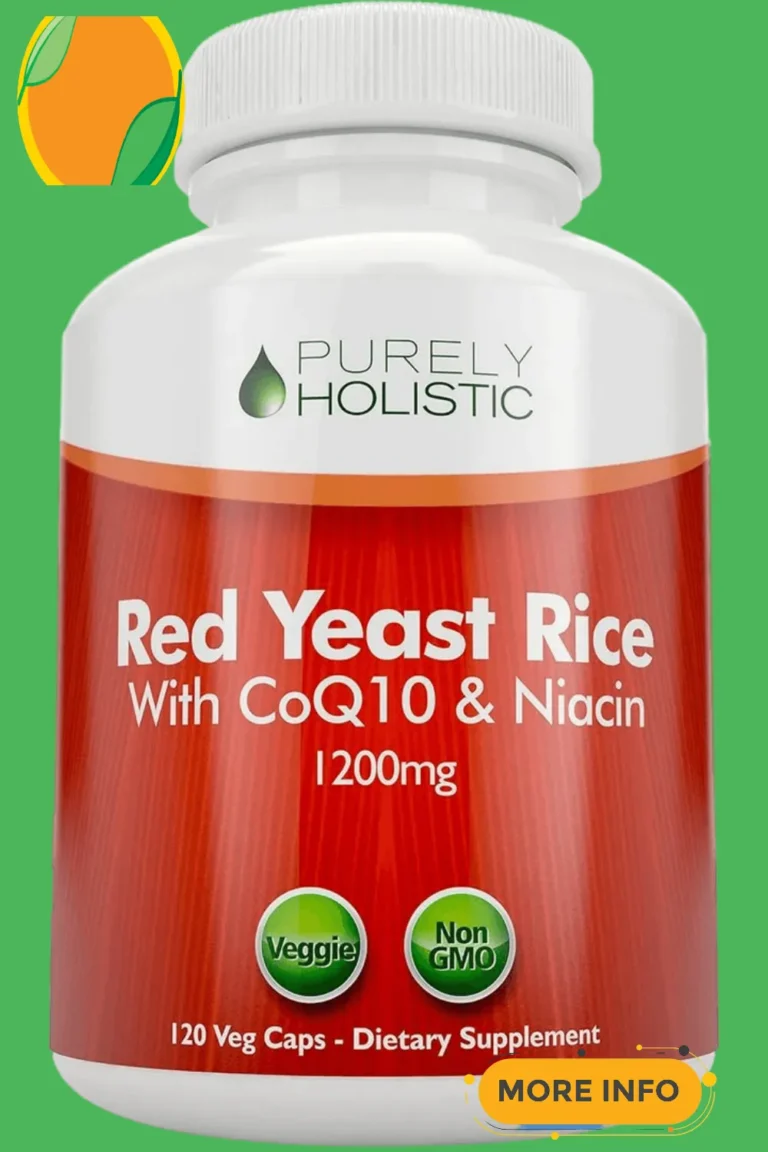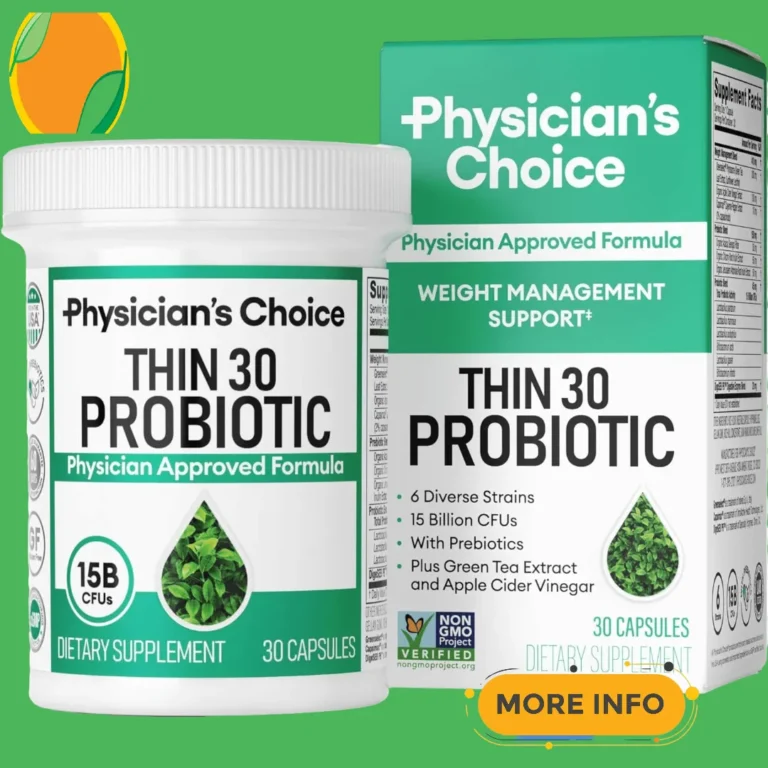All About Vitamins And Minerals
Imagine waking up each morning with boundless energy, a clear mind, and an immune system ready to fend off any invaders.
The secret to such vitality isn’t hidden in some distant fountain of youth but is found in the essential nutrients we consume daily—vitamins and minerals.
Welcome to All About Vitamins And Minerals, where we’ll embark on an enlightening journey through the microscopic yet mighty world of these fundamental components that power our bodies.
In a society inundated with fast food options and quick fixes, understanding the importance of vitamins and minerals has never been more crucial.
These tiny molecules are responsible for everything from bolstering our bones to sharpening our mental acuity.
Yet, despite their significance, many people remain unaware of how they function or where to find them.
Whether you’re aiming to polish your nutritional knowledge or seeking ways to enhance your overall well-being, this article will provide comprehensive insights into the wonders of vitamins and minerals.
Prepare yourself for a deep dive into nature’s own toolkit for optimal health!
Vitamins and minerals play a crucial role in maintaining overall health and well-being.
These essential nutrients are essential for various bodily functions such as metabolism, immune system support, and cell growth.
Understanding the benefits and sources of vitamins and minerals can help individuals make informed choices about their diet and supplementation.
In this article, we will delve into the world of vitamins and minerals, exploring their importance, recommended daily intake, and potential health effects of deficiency or excess.
From vitamin A to zinc, each nutrient serves a unique purpose in the body and contributes to overall health and vitality.
We will also discuss the differences between vitamins and minerals, how they are absorbed and utilized by the body, and how to ensure you are getting an adequate amount through your diet or supplementation.
Whether you are looking to optimize your health, support a specific health condition, or simply learn more about the role of vitamins and minerals in the body, this article will provide you with the comprehensive information you need to make informed choices for your health and well-being.
Table of Contents All About Vitamins And Minerals
Vitamin D: Essential for health
Vitamin D, often referred to as the “sunshine vitamin,” plays a crucial role in supporting overall health and well-being.
Beyond its traditional association with bone health, this fat-soluble vitamin is involved in various physiological functions, including immune system modulation, cell growth regulation, and inflammation reduction.
Adequate levels of Vitamin D are essential for maintaining strong bones and teeth, supporting cognitive function, and promoting cardiovascular health.
However, many individuals worldwide suffer from Vitamin D deficiency due to factors such as limited sun exposure, dietary restrictions, or certain health conditions.
Therefore, it is essential to understand the importance of Vitamin D and incorporate strategies to ensure optimal levels for improved health outcomes.
Iron: Supports blood cell production
Iron is an essential mineral that serves a critical role in the production of red blood cells, which are responsible for transporting oxygen throughout the body.
Without an adequate supply of iron, the body may struggle to produce a sufficient amount of hemoglobin, the protein in red blood cells that binds oxygen.
This can lead to a condition known as iron deficiency anemia, characterized by fatigue, weakness, and shortness of breath.
By supporting blood cell production, iron plays a vital role in maintaining overall health and well-being, making it crucial to ensure adequate intake through a balanced diet or supplementation when necessary.
Vitamin C: Boosts immune system
Vitamin C, also known as ascorbic acid, is a powerful antioxidant that plays a crucial role in supporting the immune system.
This essential vitamin is involved in various cellular functions that help combat infections and illnesses by stimulating the production and function of white blood cells, which are key components of the body’s defense system.
Additionally, Vitamin C has been shown to enhance the body’s ability to absorb iron, further aiding in the production of healthy red blood cells and promoting overall immune health.
Including Vitamin C-rich foods such as citrus fruits, bell peppers, and leafy greens in your diet can help boost your immune system and support your body’s natural defense mechanisms.
Calcium: Vital for bone health
Calcium is a mineral essential for supporting bone health, making it a vital component of overall well-being.
The skeletal system relies on calcium for structural integrity, as it provides strength and density to bones, keeping them healthy and resistant to fracture.
In addition to bone health, calcium also plays a critical role in muscle function, nerve transmission, and hormonal balance.
Adequate calcium intake is especially crucial during childhood and adolescence when bones are growing rapidly, and later in life to prevent bone loss and osteoporosis.
Dairy products such as milk, yogurt, and cheese are well-known sources of calcium, but it can also be found in leafy green vegetables, nuts, and fortified foods.
Incorporating calcium-rich foods into your diet is essential for maintaining strong bones and optimal overall health.
Vitamin A: Promotes vision health
Vitamin A, an essential fat-soluble vitamin, plays a crucial role in promoting vision health and maintaining proper eye function.
This vitamin is necessary for the formation of rhodopsin, a pigment in the retina that enables the eye to detect light and distinguish between colors in low-light conditions.
In addition to supporting night vision, Vitamin A also helps prevent a condition known as xerophthalmia, which can lead to dry eyes and ultimately impair vision.
Sources of Vitamin A include liver, dairy products, eggs, and orange and yellow fruits and vegetables such as carrots, sweet potatoes, and mangoes.
Ensuring an adequate intake of Vitamin A through a balanced diet is essential for preserving eye health and optimal vision.
Magnesium: Supports nerve and muscle
Magnesium is a vital mineral that plays a fundamental role in supporting nerve and muscle function within the human body.
As the fourth most abundant mineral in the body, magnesium is essential for numerous biochemical processes, including energy production, protein synthesis, and muscle contractions.
Its presence facilitates the transmission of nerve impulses and helps muscles relax after contraction, contributing to smooth and coordinated movements.
Additionally, magnesium is involved in the regulation of blood pressure, blood sugar levels, and bone health.
Rich dietary sources of magnesium include leafy green vegetables, nuts, seeds, whole grains, and legumes.
Adequate intake of magnesium is crucial for maintaining optimal nerve and muscle function, as well as overall health and well-being.
Vitamin B12: Aids in energy production
Furthermore, Vitamin B12, also known as cobalamin, is a water-soluble vitamin that plays a crucial role in energy production within the human body.
This vitamin assists in the process of converting food into usable energy by aiding in the synthesis of red blood cells, which carry oxygen to various tissues and organs.
Additionally, Vitamin B12 is involved in the maintenance of the nervous system and DNA production.
A deficiency in Vitamin B12 can lead to symptoms such as fatigue, weakness, and neurological issues, underscoring its importance for overall health and well-being.
Sources of Vitamin B12 include animal products like meat, fish, eggs, and dairy, making it essential for individuals following vegetarian or vegan diets to obtain this vitamin through fortified foods or supplements to support energy metabolism and overall health.
Zinc: Essential for immune function
Zinc, an essential mineral for human health, plays a fundamental role in supporting proper immune function.
This mineral is crucial for the development and function of immune cells, helping the body fight off infections and illnesses effectively.
Zinc acts as a cofactor for numerous enzymes involved in maintaining a balanced immune response, supporting both innate and adaptive immunity.
Additionally, zinc is necessary for wound healing, DNA synthesis, and protein metabolism, further highlighting its importance in overall health.
Adequate zinc intake is particularly vital during periods of increased stress or illness when the body’s demand for this mineral is elevated.
Dietary sources of zinc include meat, shellfish, legumes, nuts, and seeds, and supplementation may be necessary for individuals at risk of deficiency to support optimal immune function and well-being.
In conclusion, understanding the role of vitamins and minerals in the body is crucial for maintaining optimal health.
By incorporating a variety of nutrient-rich foods into our diets, we can ensure that we are meeting our daily requirements and supporting our overall well-being.
While supplements can be helpful in certain circumstances, it is important to consult with a healthcare professional before adding them to our daily regimen.
With knowledge and mindful choices, we can harness the power of vitamins and minerals to support a healthy and vibrant life.
FAQ
What are the main differences between vitamins and minerals?
Vitamins are organic compounds that are essential for various bodily functions and must be obtained through the diet, while minerals are inorganic elements that also play important roles in the body.
Vitamins are classified as either water-soluble or fat-soluble, while minerals are categorized as macrominerals or trace minerals based on the body’s requirement.
Vitamins are needed in smaller quantities compared to minerals, which are required in larger amounts.
Overall, vitamins and minerals both contribute to overall health and well-being but differ in their chemical composition and specific functions in the body.
How do vitamins and minerals contribute to overall health and well-being?
Vitamins and minerals play essential roles in supporting various bodily functions such as metabolism, immune system function, bone health, and energy production.
They are crucial for maintaining overall health and well-being by helping to prevent deficiencies and diseases, supporting growth and development, and aiding in the repair and maintenance of tissues.
Consuming a balanced diet rich in vitamins and minerals is important for optimal health, as they work together to keep the body functioning properly and help prevent chronic health conditions.
What are some common sources of vitamins and minerals in the diet?
Common sources of vitamins and minerals in the diet include fruits, vegetables, whole grains, lean proteins, dairy products, nuts, and seeds.
These foods provide essential nutrients such as vitamin C, vitamin A, vitamin D, vitamin B-12, calcium, iron, and potassium.
It is important to maintain a balanced diet that incorporates a variety of these nutrient-rich foods to meet daily requirements for optimal health and well-being.
What are some potential consequences of vitamin or mineral deficiencies?
Vitamin or mineral deficiencies can lead to a range of health issues, including fatigue, weakened immune system, poor bone health, impaired cognitive function, and increased risk of chronic diseases like anemia, osteoporosis, and cardiovascular problems.
These deficiencies can also affect growth and development in children, contribute to mental health disorders, and impact overall well-being and quality of life.
It is essential to maintain a balanced diet rich in essential vitamins and minerals to prevent deficiencies and support optimal health.
Regularly monitoring nutrient levels and consulting with healthcare professionals can help address and prevent potential consequences.
How can individuals ensure they are getting a sufficient amount of vitamins and minerals in their daily diet?
Individuals can ensure they are getting a sufficient amount of vitamins and minerals in their daily diet by consuming a diverse range of fruits, vegetables, whole grains, lean proteins, and dairy products.
It is also important to limit processed foods and sugary beverages, and consider taking a multivitamin supplement if necessary.
Regularly tracking food intake and consulting with a healthcare provider or registered dietitian can help ensure nutritional needs are being met.
Additionally, focusing on variety and balance in meals can help optimize nutrient intake.







